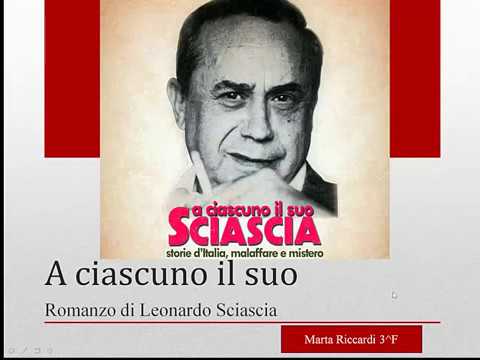
Vietnam
27 Gennaio 2019
A ciascuno il suo di Leonardo Sciascia
27 Gennaio 2019
in English literature
The industrialization changed radically the landscape of Great Britain. In the first half of the XIX century the Midlands had already gained the name of nack country“. It was an area of gloomy buildings, small towns full of smoke, streets that created a sense of confusion and dismay and canals to which the railway was added.
 The Industrial Revolution caused an uncontrolled growth of the city. Small towns called mushroom towns” were constructed to house the workers. They were called in this way because they sprang up suddenly and multiplied rapidly around factories near sources of water power.
The Industrial Revolution caused an uncontrolled growth of the city. Small towns called mushroom towns” were constructed to house the workers. They were called in this way because they sprang up suddenly and multiplied rapidly around factories near sources of water power.
For workers living in the city meant long working hours and appalling living conditions. Industrial cities lacked elementary public services (water supply, sanitation, street-cleaning, open spaces). The air and the water were polluted by smoke and filth, the houses, built in endless rows, were over crowded.
A text written in this period describes a village composed by endless rows of houses with two or more floors, not arranged in a continued way along the roads but interrupted by furnaces, piles of coal which burnt in the process of transformation in coke and chimneys of machinery; the countryside was cut by canals and lands were occupied by grass, cereals mixed with rejects of mines and slags of blast furnaces”.
In the city the air was heavy for humans breath, the harmful steams carried by the smoke from the factories blackened the surrounding landscape and made the trees die.
Also London had a lot of problems, in the XIX century the filthy waters were poured in the Thames, making the environmental condition worse. The journalists described the river as a sewer with a river inside”. The situation was so serious that, during the Great Stink“, a sitting of the Parliament had been interrupted because of the stench.
This situation made a lot of poets think about the transformation of the landscape.
William Blake

William Blake, autoritratto
London
I wandered through each chartered street
Near where the chartered Thames does flow,
A mark in every face I meet,
Marks of weakness, marks of woe.
In every cry of every man,
In every infant’s cry of fear,
In every voice, in every ban,
The mind-forged manacles I hear:
How the chimney-sweeper’s cry
Every blackening church appals,
And the hapless soldier’s sigh
Runs in blood down palace-walls.
But most, through midnight streets I hear
How the youthful harlot’s curse
Blasts the new-born infant’s tear,
And blights with plagues the marriage-hearse.

Analysis
London” in one of the most powerful descriptions of an industrialized town that can be found in literature.
In this poem, from Songs of Experience“, Blake illustrates his view of London. He focused his attention on the evil consequences of the Industrial Revolution: the injustices caused by a materialistic attitude and the commercial exploitation of human beings. In his poems he sympathized with the victims of industrial society such as children and prostitutes, as well as with the victims of institutional oppression such as orphans and soldiers.
Reading the first stanza we can already understand that there is a first person narrator because the first word of the poem is the I” pronoun. The poet uses words related to business to describe the city, moreover he underlines the suffering of people slaves of their working hours.
In the second stanza, in line 8, the poet introduces the image of manacles, this metaphor with a deep meaning: according to the poet, political and social institution had imprisoned people morally, they had forged mens mind so that they do what government wants them to do.
In this poem Blake condemns three institutions: Church, Monarchy (represented by the Palace) and Marriage.
Blake attacks blackning Church” because it doesn’t make anything to avoid childrens exploitation and forgets the truth and original religious spirit. The word blackning” indicates both the immorality of the Church and the fact that in Blakes time churches were black for the smoke and the pollution caused by urbanisation and industrialisation.
Then Blake condemns Monarchy because it puts at risk soldiers life who stand guard outside the royal palaces.
 Finally he criticises Marriage that brings to prostitution because it reduces mens freedom. At that time there werent love-marriages but people got married only for interest. For this reason and because of the unemployment, women who belongs to low social classes became prostitutes; this phenomenon brings to moral degradation of the society, determined the birth of illegitimate children and the spread of many diseases (for example the syphilis) and caused the destruction of the families. So the poet links marriage to death with the image of the hearse“. In the last stanza, Blake says that the youthful Harlot blasts the new born Infants tear“: this means that there are no feelings, so it is useless to show pain or any other feelings because of the poverty of London industrial society.
Finally he criticises Marriage that brings to prostitution because it reduces mens freedom. At that time there werent love-marriages but people got married only for interest. For this reason and because of the unemployment, women who belongs to low social classes became prostitutes; this phenomenon brings to moral degradation of the society, determined the birth of illegitimate children and the spread of many diseases (for example the syphilis) and caused the destruction of the families. So the poet links marriage to death with the image of the hearse“. In the last stanza, Blake says that the youthful Harlot blasts the new born Infants tear“: this means that there are no feelings, so it is useless to show pain or any other feelings because of the poverty of London industrial society.
The tone is initially emotional, grave and sombre, then it becomes indignant combining compassion for the oppressed with bitter scorn for the oppressor.
William Wordsworth
William Wordsworth, ritratto
Composed upon Westminster Bridge
Earth has not anything to show more fair:
Dull would he be of soul who could pass by
A sight so touching in its majesty:
This City now doth, like a garment, wear
The beauty of the morning; silent, bare,
Ships, towers, domes, theatres, and temples lie
Open unto the fields, and to the sky;
All bright and glittering in the smokeless air.
Never did sun more beautifully steep
In his first splendour, valley, rock, or hill; 10
Ne’er saw I, never felt, a calm so deep!
The river glideth at his own sweet will:
Dear God! the very houses seem asleep;
And all that mighty heart is lying still!
Analysis
Wordsworth wrote that he composed this poem on the roof of a coach on his way to France. He had been stuck by the beautiful sight of London as he was crossing Westminster Bridge. It is an interesting example of the poets ability to give emotional power to what he describes.
This poem is written a few years after Blakes London”, it gives a different vision of the city, The sonnet expresses a deep emotion at the sight of the city asleep in the early morning sun. The City now does, like a garment, wear the beauty of the morning, everything is sleeping and this sigh of the town arouse him a strong emotion. The occasion of the poem seems surprising for a poet who expressed in so many poems his love for nature and his distaste for the noisy and gloomy industrial cities.
Describing London the poet said that Earth has not anything to show more fair“, the city is represented with images which give it a sense of solemnity a sight so touching in its majesty and it is personified: the word City is written with the capital letter and the poet used terms normally linked to people, the city wears” like a garment” that heart”.
To give the sense of calm he used the adjectives silent, smokeless to underline that it is early in the morning and London is beautiful because the factories are sleeping, there is not pollution and the city is not dirty. We can find an indirectly accuse of industrialisation. Only when the factories are closed, ships, towers and theatre are bare and when the town in silent, it is also beautiful because it is not spoilt by industrialisation and pollution.
The explanation is to be fond in the particular moment of the day which seems to bathe London in the same clear and smokeless” air as the natural landscape, and which creates a continuity between the city and the countryside around.
It is then possible for the poet to associate it towers, ships, domes with valley, rock and hill and to see them as a part of to natural world.

